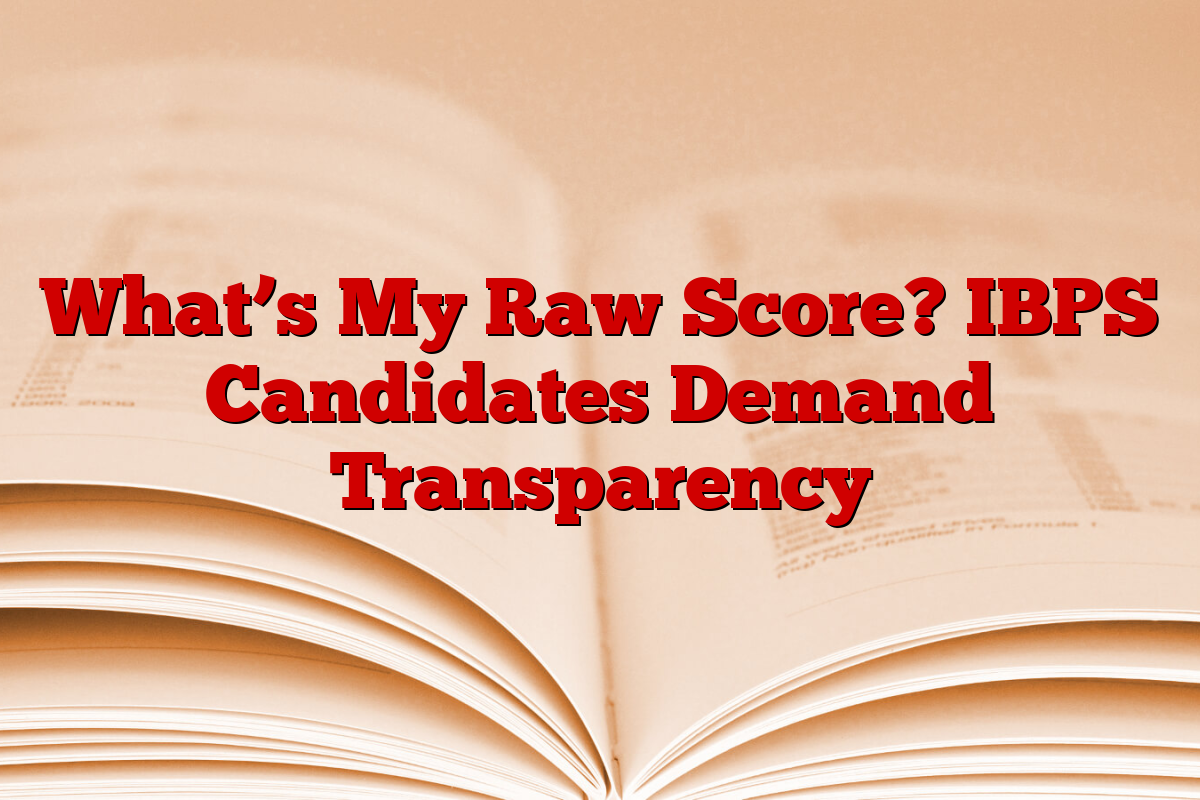The Institute of Banking Personnel Selection (IBPS) plays an important role in the recruitment of candidates for various public sector banks across India. Every year, millions of aspirants appear for examinations like IBPS PO, IBPS Clerk, IBPS RRB, IBPS SO, and all SBI, with the hope of getting a reputed job in the banking sector. However, despite the competitive nature of these exams and the rigorous selection process, an issue still disappoints candidates’ lack of transparency about raw marks.
What is my raw score?
When IBPS publishes the exam results, candidates are only shown their final or generalized scores, not the actual raw marks that they had secured in the exam. This raises a fundamental question in every aspiration’s mind: “What is my raw score?” Without access to these untouched scars, candidates are left in the dark as to how they actually perform, call for more transparency in confusion, mistrust and evaluation process. The situation reflects a big issue Normalization without clarity? Which disappoints serious aspirations across the country.
What’s the issue?
After each IBPS exam, the organization releases a final scorecard, including the generalized score, sectional cut-offs and final digits after moderation. However, candidates are provided with their raw scores anytime the actual marks obtained before generalization or scaling. This lack of transparency confuses many aspirations and doubts about the fairness of the process, promotes further debate: What is IBPS losing confidence?
Why are the candidates demanding transparency?
Understanding performance: Without a raw score, candidates cannot actually evaluate their actual performance in the exam. Knowing the correct number of answers can help them improve future efforts.
Doubt on generalization process: The generalization method used by IBPS has always been under investigation. Candidates often feel that their final scores do not reflect their real effort or performance, especially when they are just below the cut-off.
There is no way to verify the results: In the absence of raw digits, the candidates are unable to verify the authenticity of the result. This deficiency of access makes the selection process feel opaque and unacceptable.
Comparison with Answer Key: While many other competitive exams (eg SSC, UPSC, and even some state-level examinations) release answer key and raw marks, IBPS has never followed the practice, despite repeated requests from candidates.
What do the candidates want?
- Raw score release: Candidates want IBPS to share raw marks with generalized score.
- Publication Answer Key: Aspires, like other central examinations, are demanding the release of official question paper and answer key after the exam.
- Explanation on Generalization: A clear explanation or documentation that underlines the generalization formula and argument used by IBPS will set a long way in the building trust.
what’s at stake?
Lack of transparency not only destroys real aspirations, but also increases serious concerns about fairness and accountability in one of India’s most reliable recruitment bodies. When the system is opaque, even a small error can give mass results for eligible candidates.
Ahead
In an era where most government bodies are embracing transparency and fairness through digitization and open data policies, this is also high time IBPS adapts. By releasing the raw score and answer key, the IBP can strengthen its credibility and assure the candidates that the selection process is completely fair and qualified.

